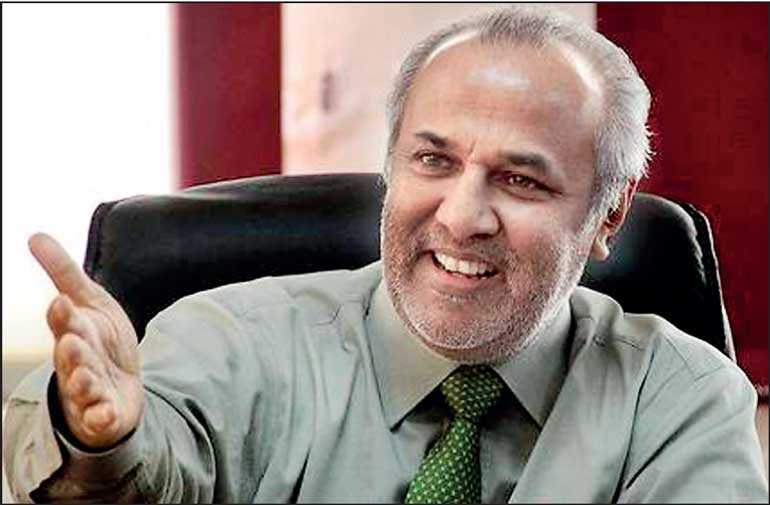Thursday Feb 19, 2026
Thursday Feb 19, 2026
Friday, 31 July 2020 00:25 - - {{hitsCtrl.values.hits}}

Rauff Hakeem
Sri Lanka Muslim Congress Leader Rauff Hakeem launches his maiden authored book, “We Are a Part, Not Apart: Demystifying Myths against Muslims of Sri Lanka” today, at Golden Crown Hotel, Ampitiya, Kandy.
The panellists invited to speak at the launch include, Ambassador Dr. Dayan Jayatilleke, Ven. Moragaswewe Vijitha Thero, Prof. B. A. Hussainmiya and Vijitha Yapa, the Publisher of the book. The event will also include reflections from the author. Hakeem’s main message in the book reiterates the need for peace among all communities and reinforces that the groups we belong to are socially constructed and not necessarily etched in stone.
The book, in Hakeem’s words, “is an appeal to the better nature of fellow Sri Lankans. It is an effort to critically examine the forces that pull us apart.” He further states in his book, that the book will act as a “socio-political covenant for the Muslims of Sri Lanka, for self-reflection” and that it would “shed light on the politics of resentment that has overwhelmed us today. It attempts to reset Muslim relations with the Sinhala majority by addressing other communities’ overarching concerns with regard to Muslims.”
In the introductory lines of his book, the Muslim community leader, Hakeem further claims: “We are all human beings with a natural tendency to seek comfort in making categorical distinctions between our immediate group and others. In this light, the book reiterates the need for peace among all communities.”
“Faith may be a common denominator, but the groups we belong to are socially constructed and not necessarily etched in stone. It is for us to decide which distinctions matter and which we can discard in order to integrate into the larger national mosaic.”
Dr. Dayan Jayatilleke, in his review of the book in the Daily Financial Times of 23 July, has claimed “Rauff Hakeem has just written the best book (published by Vijitha Yapa) on politics by a Sri Lankan politician that I have read. It is on the existential situation of Sri Lanka’s Muslims, but is embedded in an objective, well-researched revaluation of Sri Lankan politics as a whole”. He also further comments on the book saying, “it is exceedingly well written, ably argued, poignantly polemical, and far more literate than I have encountered in the writing of any contemporary Lankan Parliamentarian or political personality. Only an intellectual politician could have authored this”.
Participation for this event is on invitation basis.